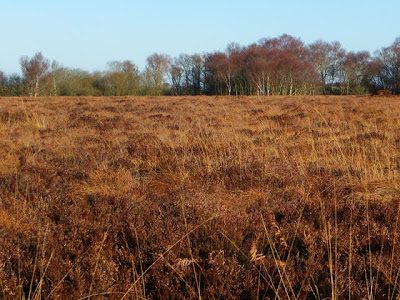 Birds of prey are always a fantastic sight to get to see. These birds are truly amazing, as they can hover for long periods and make it look so effortless. It is understood that they can see in ultraviolet light which is a real advantage when hunting for rodents, as rodents urine glow when viewed in ultraviolet. The wonders of natural selection.
Birds of prey are always a fantastic sight to get to see. These birds are truly amazing, as they can hover for long periods and make it look so effortless. It is understood that they can see in ultraviolet light which is a real advantage when hunting for rodents, as rodents urine glow when viewed in ultraviolet. The wonders of natural selection.
This blog is a recording of field trips during my undergraduate degree at LIT Thurles,Ireland.
Monday, January 31, 2011
Hovering Kestrel
 Birds of prey are always a fantastic sight to get to see. These birds are truly amazing, as they can hover for long periods and make it look so effortless. It is understood that they can see in ultraviolet light which is a real advantage when hunting for rodents, as rodents urine glow when viewed in ultraviolet. The wonders of natural selection.
Birds of prey are always a fantastic sight to get to see. These birds are truly amazing, as they can hover for long periods and make it look so effortless. It is understood that they can see in ultraviolet light which is a real advantage when hunting for rodents, as rodents urine glow when viewed in ultraviolet. The wonders of natural selection.
Labels:
biodiversity,
bird,
bird of prey,
flight,
hovering,
kestrel,
ornithology
Fallow Deer
Labels:
black and white,
Fallow Deer,
grass,
Little Brosna Callows
The Little Brosna Callows bird hide
 The glare from the sun is a problem when trying to identify species, ice on the water too is an added challenge
The glare from the sun is a problem when trying to identify species, ice on the water too is an added challenge
Mixed flock
Labels:
ashton callows,
biodiversity,
birds,
mixed flock,
water
Ashton Callows
 Water levels slightly lower when compared to Sunday December 5 post (view from Ashton Callows bird hide)
Water levels slightly lower when compared to Sunday December 5 post (view from Ashton Callows bird hide)
The Little Brosna Callows
We returned again to the Little Brosna Callows on the 19/Jan/2011, grid reference M970115. The water levels were slightly lower than our previous visit and surprisingly bird numbers were low too. This may be due to the extreme low tempertures over Ireland through the months of November and December. It was suggested from a member of Birdwatch Ireland who was on site the day we visited that perhaps the migrating birds had continued further south to Spain and Portugal. When all winter data is collected we will get a better understanding of this theory.
Labels:
birds,
birdwatch ireland,
extreme,
Little Brosna Callows,
M970115,
portugal,
spain
Wednesday, January 26, 2011
Wren claw anatomy
Labels:
anatomy,
bird,
hallux,
passeriformes,
passerine,
phalanx,
tarsometatarus,
wren
Subscribe to:
Comments (Atom)



